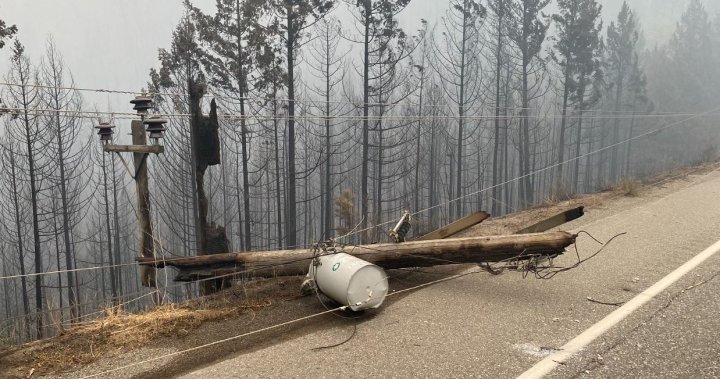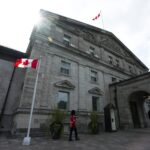Tension is mounting across British Columbia’s interior communities as BC Hydro announces a controversial new wildfire prevention strategy that has left local officials questioning both its timing and implementation. The crown corporation’s proposal to cut power during extreme fire conditions has sparked particular concern in Princeton, where Mayor Spencer Coyne describes a “wave of fear” sweeping through his community.
“This initiative has created a wave of fear through my entire community, and I’m assuming every other community in the Interior,” Coyne told CO24 News in an exclusive interview. “The timing is completely inappropriate. To drop this on us in December when we’re all busy with other matters—it’s unconscionable.”
The Public Safety Power Shutoff Initiative, quietly revealed to municipalities earlier this month, would allow BC Hydro to proactively disconnect electricity to designated high-risk areas when extreme wildfire conditions prevail. The utility company maintains this approach is necessary following the devastating 2023 wildfire season that saw power infrastructure implicated in multiple fire ignitions.
Princeton officials argue they received minimal consultation before the plan’s development, leaving critical questions about emergency preparedness unanswered. Coyne emphasized that Princeton’s hospital lacks sufficient backup generator capacity to maintain full operations during extended outages—a life-threatening vulnerability in a community where summer temperatures regularly exceed 40°C.
“Our hospital generator will only power limited operations. What happens to our most vulnerable citizens in care facilities or those relying on home medical equipment?” Coyne questioned. “These aren’t just inconveniences—these are life-or-death considerations.”
Environmental experts acknowledge the difficult balance between fire prevention and essential services. Dr. Melissa Lowry, a wildfire management specialist at the University of British Columbia, told CO24, “Power infrastructure has definitely contributed to wildfire ignitions, but preventative shutoffs require extensive community-level planning. The California model demonstrates both successes and significant failures when implemented without proper safeguards.”
BC Hydro spokesperson Rachel Williams defended the initiative, noting that similar programs have proven effective in California and other fire-prone regions. “This is a last-resort measure that would only be deployed under specific, high-risk conditions,” Williams explained. “We’ve begun engagement with municipalities and will continue developing robust protocols with community input.”
The controversy highlights broader tensions in British Columbia’s wildfire strategy, where climate change continues to escalate fire risks while communities struggle to adapt quickly enough. Provincial authorities recorded 469 wildfires related to human activity in 2023, with power infrastructure failures comprising a growing percentage.
For residents of Princeton and similar communities across the BC interior, the power shutoff initiative represents more than just potential inconvenience—it raises fundamental questions about emergency resilience in an increasingly unpredictable climate future.
“We need comprehensive plans that protect both our forests and our people,” Mayor Coyne insisted. “Right now, this initiative feels like trading one danger for another.”
As British Columbia prepares for what meteorologists predict will be another challenging fire season in 2024, the question remains: can the province develop wildfire mitigation strategies that protect forests without putting its most vulnerable citizens at risk?

























